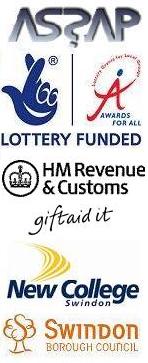They're Coming For Your Kids!
PSI’s Trystan Swale examines the rights and wrongs of paranormal investigators involving children with their work.
Horror movie buffs may rub their hands with glee when told the line ‘they’re coming for your children’, but ‘they’ in this context doesn’t mean monsters, vampires or aliens. Rather, it refers to a selection of ghost hunters and self-proclaimed paranormal investigators.
In 2008 the world’s media reported Robbie Williams’ ghost hunt with Staffordshire teenagers. At around the same time I also witnessed the rather unpleasant sight of a medium giving a reading to a pubescent child, supposedly communicating with a dead grandparent. More recently we’ve seen the launch of a ghost hunting events company for 13 to 18 year olds and also read of a domestic group working with a school to teach history through means of conducting paranormal investigations.
The practice of involving children with ghost hunts and investigations is a rightfully thorny issue. Whilst child protection issues may seem the most obvious objection, there is also a massive ethical question to consider: is it ever justified to expose pre-sixteen children to the disputed issue of life after death, especially when it is presented as a fact rather than opinion? From the above examples it would seem that some people have no problems with exposing their offspring to the paranormal. A reasoned retort suggests this happens anyway with the teaching of Religious Education to children, yet good educators never disguise the role of ‘faith’ as a subjective context within their work: you can prey to a higher power but don’t expect to come directly face to face with him anytime soon. Likewise, would anyone seek to encounter the Holy Ghost on a dark. night in a paranormal tourist trap?
It has also been pointed out that children are immersed in paranormal related literature from an early age, but the ghosts of picture books are clearly fictional, typically reminiscent of the cheerful Casper character. By contrast, the ghosts young people may expect to encounter on an investigation are said to be the spirits of people who were once as physically real as you or I. Should a medium become involved then the potential is there for those alleged spirits to even communicate with the children. The potential for children suffering sleepless nights - or worse - in the following days and weeks is only too clear!
Perhaps my biggest qualm is the prospect of young people being informed by authoritative figures that ghosts are real: they can be located by specialised equipment and make contact with the living. Given the totally assumptive nature of such claims there is a real danger that even the most well meaning school, paranormal investigator or medium is exposing youngsters to incorrect ‘factoids’. Investigators should also be aware of the potential ethical issues they face if interviewing a child as a case witness. Clumsy questioning and the misguided promise of finding answers can also lead children into assuming that spirits do exist. The individual should also think of the wider ramifications: could this child or their guardians make an accusation against me? Is the child considered vulnerable by the authorities? Am I am doing more harm than good?
The simplest way to avoid the dangers of misleading
young people or exposing yourself to accusations
is the easiest. Don’t mix children with
paranormal investigations. You may think you’re
on the verge of involvement in a case which will
make your name as a top investigator. But what’s
most important? The safety and well being of
yourself or five minutes of short lived fame?


